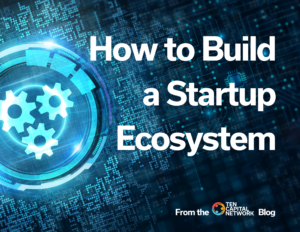
How to Optimize Your Startup Ecosystem
2min read You’ve started your own startup ecosystem. You’ve recruited startups from your area, hosted successful networking events, and overcame several obstacles thrown your way

2min read You’ve started your own startup ecosystem. You’ve recruited startups from your area, hosted successful networking events, and overcame several obstacles thrown your way

2min read As with any organization, it helps to have a focus area for your startup ecosystem. This gives you a foundation to build from

2min read Considering launching a startup ecosystem? Consider this your crash course. In this article, we share everything you need to know to develop your

2min read Startup ecosystems are growing in popularity and for good reason. If you are in the entrepreneurial space, you have likely heard of this